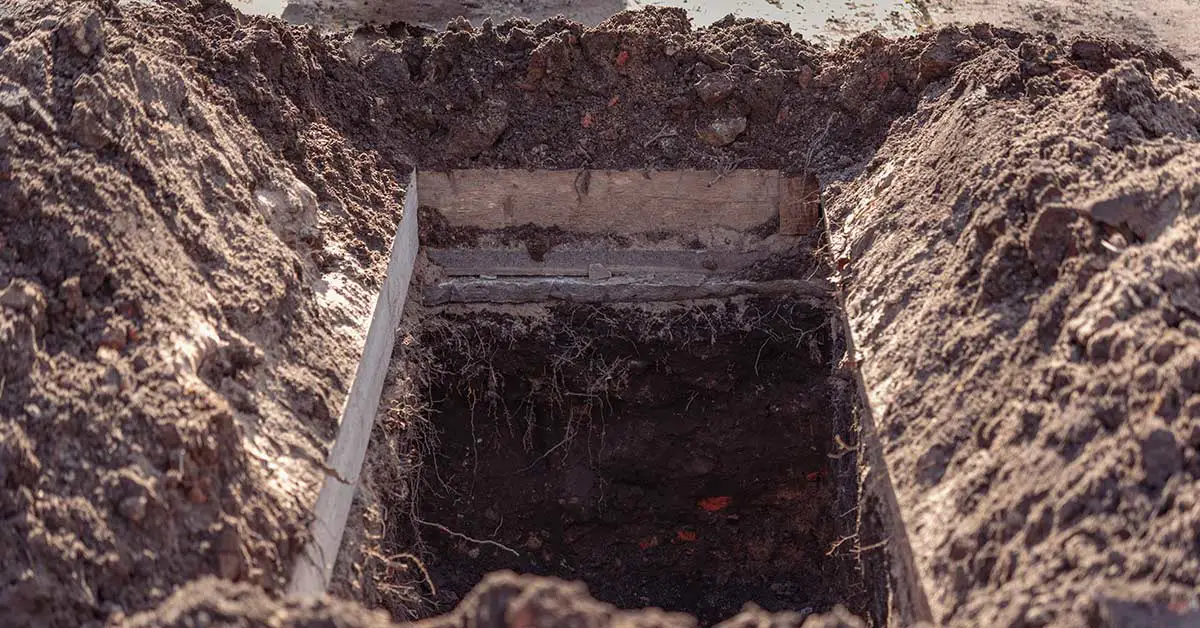In May 2021, Colorado joined Washington as only the second state to legalize human composting as an alternative to cremations and burials (1). This means that citizens of those states can now choose to have their bodies turned into the soil after their death. Body composting is considered a “green” alternative to traditional burial practices, as well as a practical option in cities where land for graveyards is scarce.
How does it work?
Seth Viddal is the co-owner of The Natural Funeral, a company that provides body composting services in Lafayette, Colo. In an interview with the Associated Press, he explained that body composting is a natural process in which the body is returned to an elemental level over a short period of time.
“This is the same process but done with a human body inside of a vessel, and in our case, in a controlled environment,” he said.
On The Natural Funeral’s website, they note that the majority of people aren’t aware of the environmental cost of a traditional burial or cremation. They describe the process as a more natural, ecologically sustainable funeral option. Viddal and his co-worker, Chris Olachia, built a special vessel for body composting, called the Chrysalis. The Chrysalis is seven feet long, three feet wide, and three feet deep. They line the box with waterproof roofing material and pack it with wood chips and straw. On either end of the box there are two large wooden wheels so they can roll it across the floor to provide the oxygenation, agitation, and absorption they need for the body to decompose.

Read: Exactly what happens to our bodies when we die – step-by-step process from death
“Our process occurs in a vessel that is safely sheltered in an environmentally controlled facility,” Viddal explained. “Over the course of a few months, natural microbial activity converts the body into a rich, organic, life-giving soil. The temperature in the vessel naturally rises during the Body Composting process. This sterilizes and stabilizes the contents as the conversion takes place.” (2)
After three months, Viddal and his team filter the soil to remove medical devices like prosthetics, pacemakers, or joint replacements. They also remove teeth to prevent contamination from mercury in fillings. Next, they pulverize the large bones that are still present, and the composting process continues for another three months. The decomposition leaves a cubic yard of soil when the process is complete. They then either return the soil to the families, who can use it on their lawns and gardens, or they donate it to a local farm.
An “exciting biological option” over traditional burials
Viddal wants to build more than 50 body composition vessels. He says that through this process, he sees life in death.
“Composting itself is a very living function and it’s performed by living organisms,” he explains. “There are billions of microbial, living things in our digestive tracts and just contained in our body. And when our one life ceases, the life of those microbes does not cease.”
The Natural Funeral charges $7,900 for body composting. By comparison, a traditional burial will typically cost $10,000 or more. While they haven’t composted any bodies yet, they have several people who have signed up and paid for the service.
“It’s what’s going to happen anyway, right? I mean, we’re all going to turn to dust, basically. So this is just a little more natural,” says AJ Killeen of Boulder, Co., who has already expressed interest in having his body composted when he dies, even though he is relatively young.
Mixed opinions
Killeen is among a growing number of people who are concerned about the environmental impact of a traditional burial or cremation. Flame cremation burns fossil fuels that contribute to climate change. The process also releases fumes that contain toxic mercury into the atmosphere. Traditional burial grounds, however, require a lot of space and resources to keep the grounds watered and mowed.
Not everyone is supportive of the new legislation, however. The Colorado Catholic Conference was against the bill. They don’t believe body composting promotes “human dignity.” Others are concerned we don’t have enough research to show if the compost contaminates the soil.
Still, more states are beginning to draft legislation to legalize body composting. A few months ago, Oregon became the third state to make the process legal, and currently, California is considering a bill that would make it the fourth state to do so (3).
More and more Americans are thinking about their impact on the environment. This is yet another way humans can reduce their environmental footprint. As more areas legalize body composting, a greater number of Americans will choose this option over a traditional burial.
Keep Reading: The Psychology of Black: What Wearing All Black Reveals About You
Sources
- “Colorado becomes only 2nd state in the U.S. to allow composting of human bodies.” Denver Post. Saja Hindi.
- “Body Composting or Natural Reduction.” The Natural Funeral
- “California Expected to Legalize Human Composting, an Eco-Friendly Burial Method.” Green Matters. Sophie Hirsh.
- “Body composting a ‘green’ alternative to burial and cremation” ABC.

